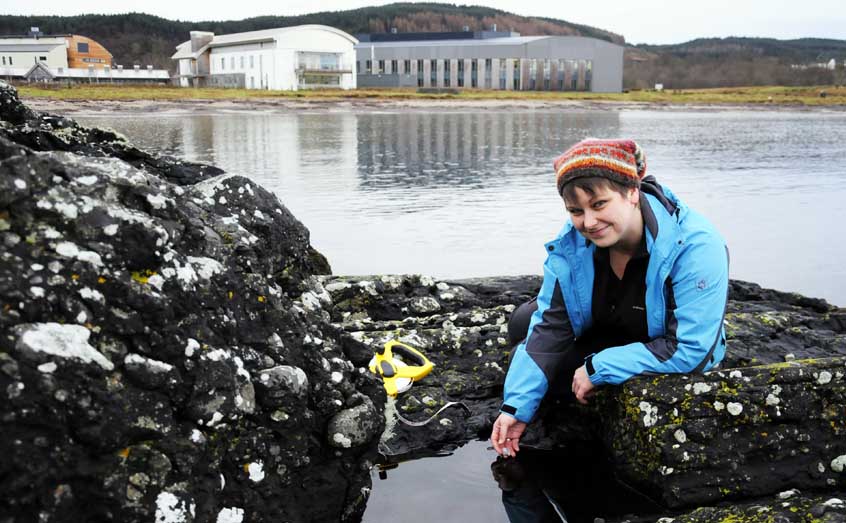SAMS news room
Coastal detective up for biology prize

A marine scientist and ‘coastal detective’ who helped to lead the UK’s largest marine citizen science project has been nominated for a UK biology award.
Dr Hannah Grist was based at SAMS when she headed up Capturing Our Coast Scotland, part of the UK-wide Capturing Our Coast project that trained more than 2,500 volunteers to help survey the British coastline.
As project co-ordinator for Scotland, Dr Grist oversaw the training of 580 citizen scientists across the country and has now been nominated for the David Robertson Adult Award for recording marine and coastal wildlife at the 2018 UK Awards for Biological Recording and Information Sharing.
These annual awards started in 2015 and have been developed by the National Biodiversity Network, the National Forum for Biological Recording and the Biological Records Centre. Their intention is to recognise and celebrate the outstanding contributions made to biological recording by adults and young people, which is helping to improve our understanding of the UK’s wildlife.
Dr Grist said: “I love being outside and discovering wildlife, and I’m especially excited by looking at a range of different species within a single habitat, and how these change and interact in different places. Biological recording is fantastic, because it combines a great excuse to get outdoors with providing a meaningful contribution to science.”
Capturing Our Coast, funded by the National Lottery, collected 240,000 data points across 2,500 surveys using 20,000 quadrats, over three years – a task which could not have been achieved by scientists alone.
Among the key findings were 162 invasive species confirmed on the UK’s coast including the Japanese Wireweed; the Portuguese and Pacific oysters; the Australian barnacle, the orange-tipped sea squirt and Wakame seaweed. The project also resulted in the first ever sighting of a stalked jellyfish at Boulmer and the first record of a toothed crab at Filey Brigg.
The data will provide a baseline to help us understand how our seas are changing as a result of human impact and climate change.
Capturing Our Coast was a national partnership, led by Newcastle University, with the Scottish Association for Marine Science, Bangor University, Marine Conservation Society, Marine Biological Association Plymouth Portsmouth University, Hull University, and national support from Earthwatch. Additional support was provided by Heritage Coast Partnership and Cefas.
The winners of the 2018 UK Awards for Biological Recording and Information Sharing will be given their prizes at a special ceremony on Wednesday, November 21 during the National Biodiversity Network's annual conference in Nottingham.
